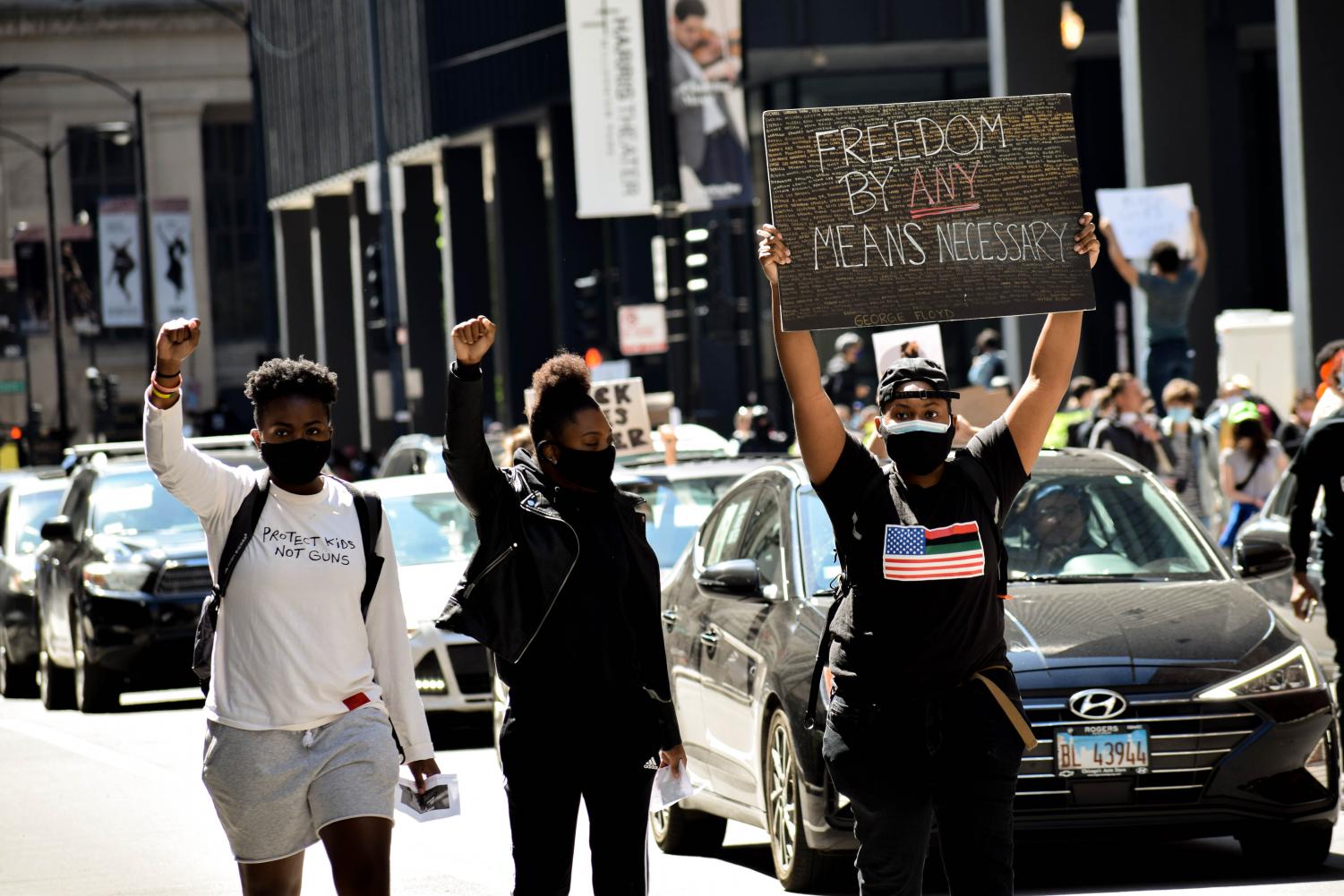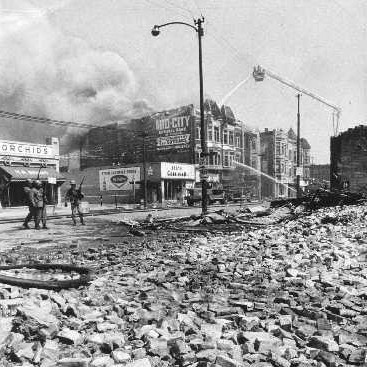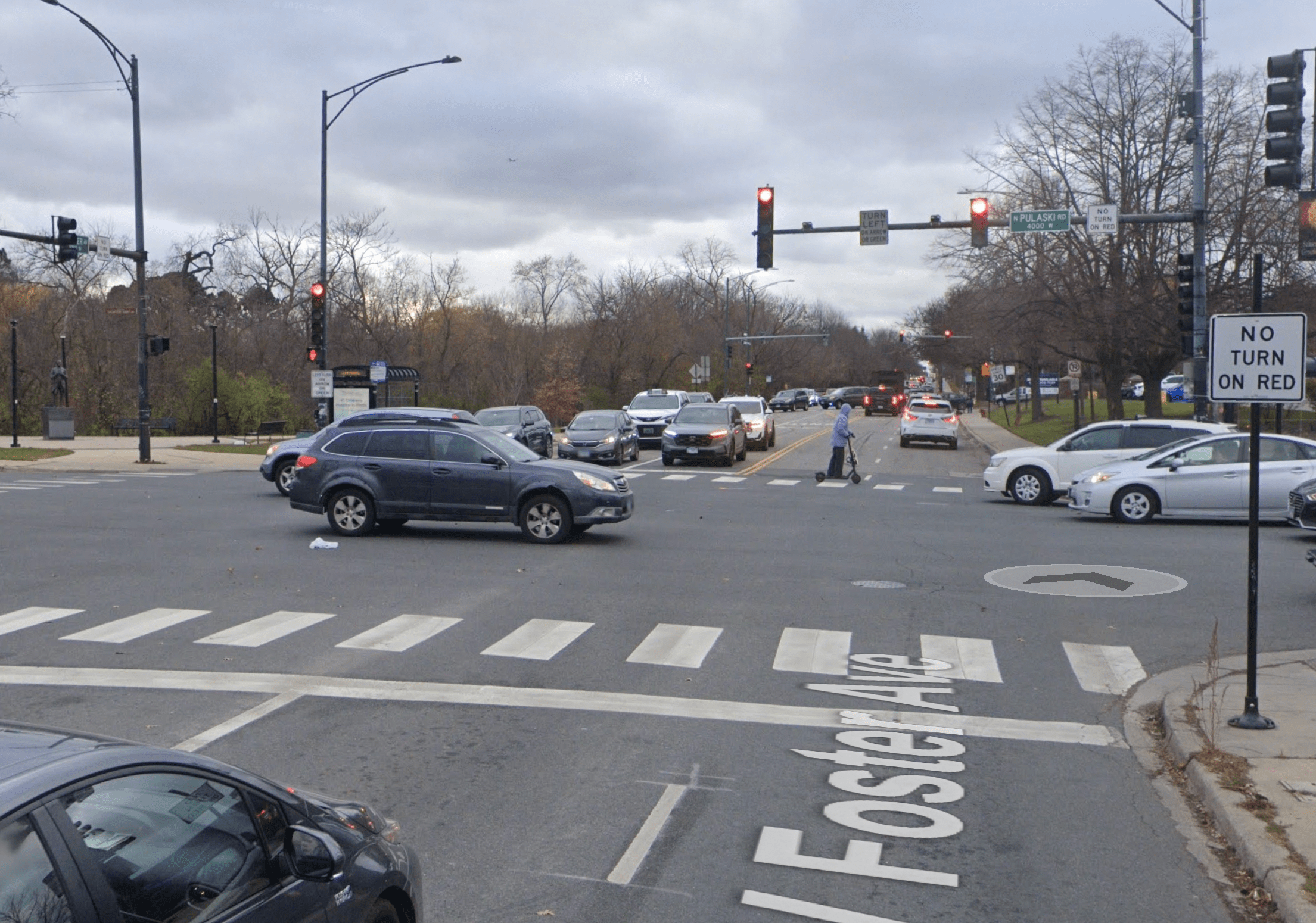When it comes to the Chicago protests in the wake of the police murder of Minneapolis resident George Floyd, I have an unusual perspective. I'm a lifelong resident of our city's Chatham community, on the Far South Side. As a writer, DJ, musician, and record collector, I travel all over the city, mostly on transit and foot, for work and personal business. And, as I've discussed before on Streetsblog, as a tall African-American male, I've had my share of experiences with racial profiling by police.
On the other hand, I'm also the son of a Black Chicago cop. My late father participated in the Chicago Police Department's response to the unrest following the April 1968 assassination of Martin Luther King Jr., as well as the crackdown on anti-war protesters a few months later during the Democratic National Convention.
I stayed indoors during the recent protests, clashes, and looting because I saw everything on television, and I figured it wasn't a good time to step out. Fortunately, the part of Chatham where I live was relatively untouched, but there were some places close by that were hit by looters, like the Jewel supermarket at 87th Street and the Dan Ryan Expressway, and plenty of nearby businesses were boarded up.
I learned about the issues surrounding the death of Mr. Floyd gradually, as I scrolled over Facebook and kept seeing that photo of him on the ground, with the cop kneeling on his neck. I definitely felt for the man, seeing that picture. And then I learned about the unrest in Minneapolis. It soon dawned on me: Summer is coming, and this might be the Rodney King uprising of 2020. And I was right.
Last Friday afternoon I happened to go the Loop for the first time in months on other business, and it was completely deserted. At that point, people were angry about George Floyd, but it seemed like the main concern was still COVID-19, and there was optimism about reopening the city.
That evening the protests started, and I started seeing the images of graffiti on cop cars and I thought, oh my God, what's happening next? Sure enough, that's when I started hearing about the rioting and the looting. At that point I couldn't really gauge the racial composition of the crowds, because I was mostly seeing aerial images.
Saturday night during an online conversation with friends, I spoke with a white person who mistakenly thought that all of the protesters and all of the rioters were Black. So I looked into the matter and I had to go back and let her know that the demonstrations and the riots were totally interracial, with all the ethnic groups of Chicago represented. In some cases whites were doing the rioting and looting and African Americans were telling them not to. In other cases it seemed that Black people were doing the looting and it had nothing to do with George Floyd; they just wanted to opportunity to do this.
No one wants another situation like the King riots of '68. No one wants this to be another Rodney King uprising. I was really hoping that we would learn from the mistakes of the past and history wouldn't repeat itself.
When I asked my dad about what happened during the riots after Dr. King's death, he was matter-of-fact about it. He pretty much just told me he was there, and that he did what he had to do. He didn't take sides in his retelling, but basically just seemed to tell me the facts about what happened, and his story lined up with other eyewitness accounts I read. I got the sense that my father felt like he did his job during the crisis, even though the police response to the unrest may have been wrong in some instances.
As for the current uprising in response to Mr. Floyd's death, as a Black man I'm cautiously optimistic that there may be some positive results for African Americans in terms of safety in public space and freedom of movement. Sadly, the destruction from the Chicago riots is a major economic setback, particularly in Black communities on the South and West sides, but I'm still hopeful that something good will come out of these protests.
It's true that we are in the Trump era. We have a president who is very cold and unfeeling. There are many people out there who want to conflate the protesters with the rioters, painting them with the same brush.
But just because you are carrying a sign doesn't mean you want to hit somebody upside the head with it. The protesters are people who are disgusted and angry about the recent killings of Black people by police and racists. They were ready to take it to the streets, letting the world know that this wasn't right and this shouldn't happen again. That's what I want the George Floyd protests to be remembered for when the smoke clears and the big book is written.






